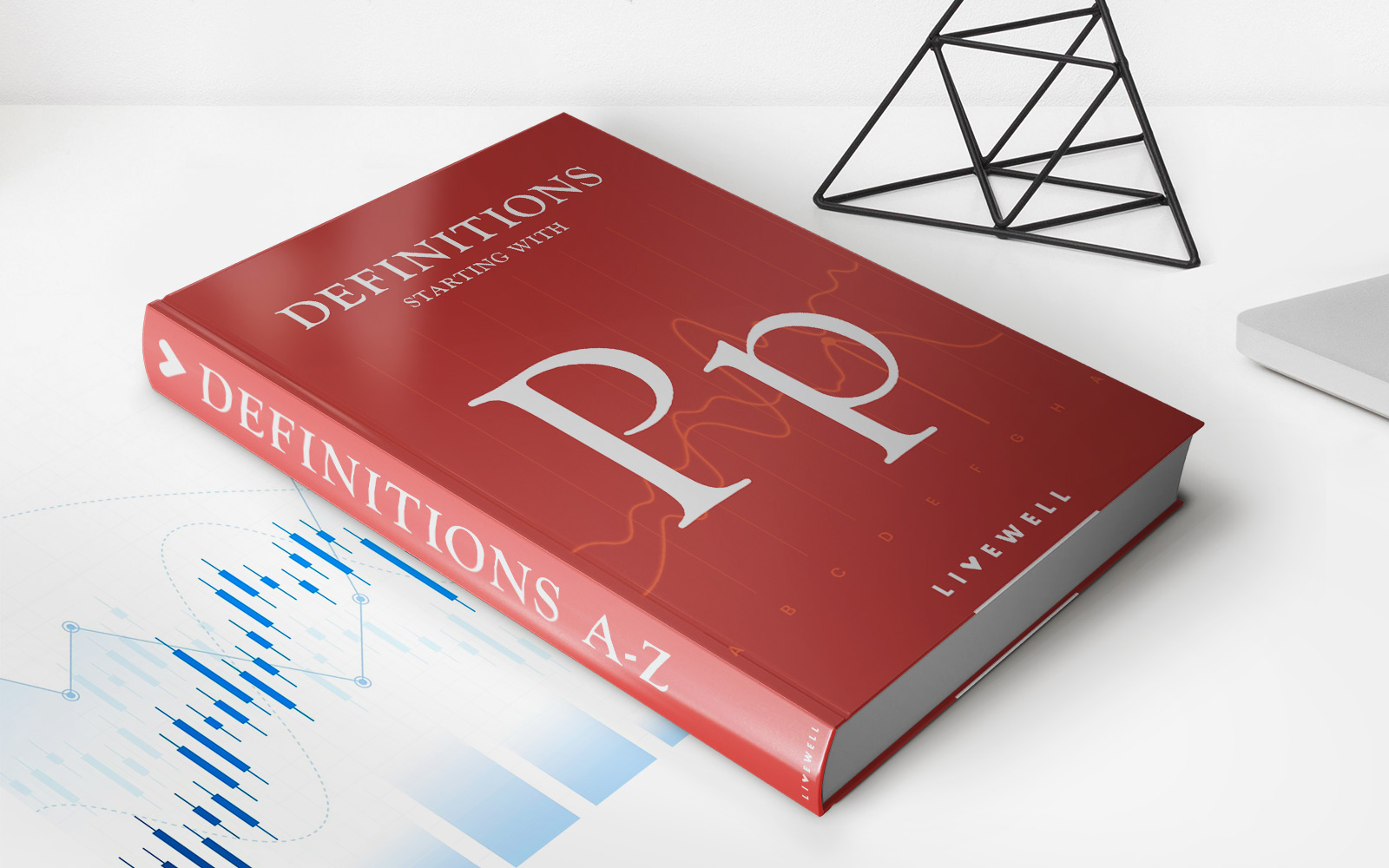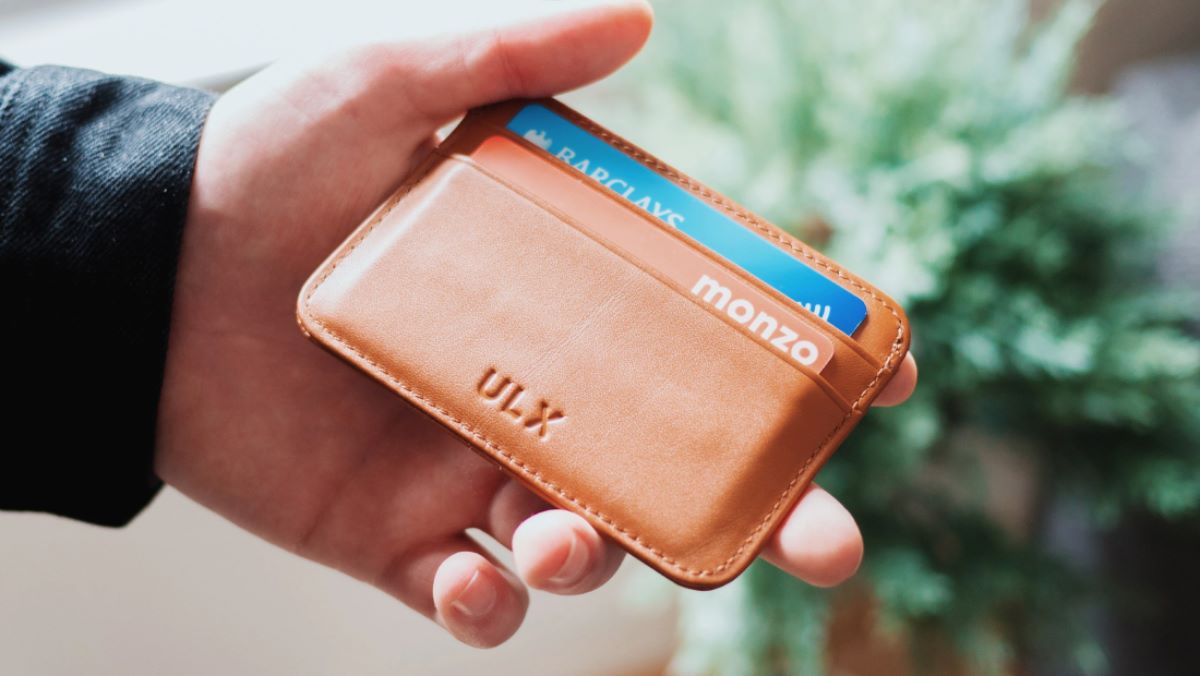Home>Finance>How To Get An Investment Loan With No Money Down


Finance
How To Get An Investment Loan With No Money Down
Published: October 16, 2023
Learn how to secure an investment loan with no upfront payment through smart financial strategies and expert advice in the field of finance.
(Many of the links in this article redirect to a specific reviewed product. Your purchase of these products through affiliate links helps to generate commission for LiveWell, at no extra cost. Learn more)
Table of Contents
- Introduction
- Understanding Investment Loans
- Can You Really Get an Investment Loan with No Money Down?
- The Benefits and Risks of No Money Down Investment Loans
- Ways to Secure an Investment Loan with No Money Down
- Option 1: Seller Financing
- Option 2: Hard Money Lenders
- Option 3: Private Money Lenders
- Option 4: Government Programs
- Option 5: Joint Ventures or Partnerships
- Tips for Successfully Obtaining a No Money Down Investment Loan
- Conclusion
Introduction
Investing in real estate can be a lucrative venture, but it often requires a significant amount of upfront capital. However, what if we told you that it’s possible to secure an investment loan with no money down? Yes, you read that right! While it may sound too good to be true, there are ways to get financing for your real estate investments without having to put your own money on the line.
An investment loan is a type of loan specifically designed for purchasing income-generating properties, such as rental properties or commercial real estate. Traditionally, these loans require a down payment of 20% or more of the property’s purchase price. This sizable upfront payment can be a major barrier for aspiring real estate investors who may not have substantial savings or access to significant funds.
However, with the right strategies and approach, it’s possible to acquire an investment loan with no money down. This article will explore the various methods and possibilities for securing such loans, along with the benefits and risks associated with them.
Before diving into the details, it’s important to note that while obtaining an investment loan with no money down can be an excellent opportunity, it requires careful evaluation and consideration. It’s crucial to thoroughly understand the terms and conditions of any loan agreement and to assess your own financial situation and investment goals.
Throughout this article, we will guide you through the different options available to secure an investment loan with no money down. It is crucial to keep in mind that each option comes with its own set of advantages and risks. By exploring these possibilities, you can make an informed decision about which approach aligns best with your investment preferences and resources.
So, if you are ready to explore the world of no money down investment loans and discover how you can finance your real estate ventures without putting up your own funds, let’s delve into the details and explore the possibilities!
Understanding Investment Loans
Before we dive into the specifics of securing an investment loan with no money down, it’s important to have a solid understanding of what an investment loan is and how it works.
An investment loan is a financial product that allows individuals to borrow money for the purpose of investing in income-generating properties. This type of loan is specifically designed for real estate investments, such as rental properties, commercial buildings, or fix-and-flip projects. Unlike traditional home loans, which are used for owner-occupied properties, investment loans are tailored to meet the unique needs of real estate investors.
When applying for an investment loan, lenders typically consider several factors, including the borrower’s creditworthiness, income, and the potential return on investment (ROI) of the property. Lenders also assess the property itself, looking at factors such as location, condition, and rental demand.
Investment loans can vary in terms of interest rates, repayment periods, and down payment requirements. Traditionally, lenders will require a down payment of 20% or more of the property’s purchase price. However, as we explore later in this article, it is possible to obtain an investment loan with no money down through alternative methods.
It’s important to note that investment loans carry a certain level of risk. Real estate investments can fluctuate in value and are subject to market conditions. Therefore, it’s essential to thoroughly evaluate the potential of your investment and have a solid business plan in place before committing to an investment loan.
Additionally, real estate investments require ongoing expenses, such as property maintenance, repairs, and property management fees. It’s important to factor in these costs when considering the affordability of an investment loan and the potential profitability of your investment.
Overall, understanding the fundamentals of investment loans will provide you with a solid foundation as you explore the possibilities of securing an investment loan with no money down. With this knowledge, you can make informed decisions and maximize your chances of successfully obtaining financing for your real estate ventures.
Can You Really Get an Investment Loan with No Money Down?
The idea of obtaining an investment loan with no money down may seem too good to be true, but it is indeed possible. However, it’s important to understand that no money down investment loans are not as readily available or commonly offered as traditional investment loans that require a down payment.
While it may be more challenging to find lenders willing to provide no money down investment loans, there are alternative methods and strategies that can help you secure financing without having to put up your own funds.
One of the key factors that will determine your eligibility for a no money down investment loan is your financial profile and creditworthiness. Lenders will closely examine your credit score, income, and debt-to-income ratio to assess your ability to repay the loan. Demonstrating strong financial stability and a solid history of responsible financial management will greatly increase your chances of obtaining a no money down investment loan.
Another crucial aspect to consider is the property’s potential return on investment. Lenders want to see the profitability and income-generating potential of the property before they agree to provide a no money down loan. Conducting thorough market research, analyzing rental rates, and showcasing a well-crafted business plan can significantly enhance your chances of securing such a loan.
It’s important to note that even if you are successful in obtaining a no money down investment loan, there are still costs involved in the process. You may need to cover expenses such as closing costs, loan origination fees, and other associated costs. Therefore, while you may not need to provide a down payment, it’s essential to have some financial resources available to cover these expenses.
In summary, while it may require more effort and research to secure a no money down investment loan, it is possible. By demonstrating financial stability, presenting a solid business plan, and exploring alternative financing methods, you can increase your chances of obtaining an investment loan without having to put up your own funds.
The Benefits and Risks of No Money Down Investment Loans
Like any financial product, no money down investment loans come with their own set of benefits and risks. Understanding these advantages and potential drawbacks is crucial before deciding if pursuing a no money down investment loan is the right choice for you.
Benefits of No Money Down Investment Loans:
- Increased Cash Flow: By eliminating the need for a down payment, you can preserve your capital and potentially increase your cash flow. This can be especially beneficial for investors who have limited savings but still want to enter the real estate market.
- Opportunity for Higher Returns: With no initial cash outlay, the potential returns on your investment can be significantly higher. If your investment property appreciates in value or generates substantial rental income, you stand to benefit from these gains without having to invest your own money upfront.
- Ability to Diversify your Portfolio: No money down investment loans allow you to expand your real estate portfolio and diversify your investments without tying up a large portion of your own funds. This can help spread your risk across different properties or markets.
- Access to Investment Opportunities: For many investors, a lack of available capital can limit their ability to take advantage of lucrative investment opportunities. No money down investment loans open the door to these opportunities, allowing you to pursue attractive deals even without substantial savings.
Risks of No Money Down Investment Loans:
- Higher Interest Rates: Lenders may offset the increased risk associated with no money down loans by charging higher interest rates. This can impact your monthly cash flow and overall profitability.
- Tighter Approval Criteria: Lenders may impose stricter criteria and requirements for no money down loans. This can make it more challenging to qualify for these loans, especially if your credit score or financial history is not strong.
- Reduced Equity Position: Without a down payment, your initial equity position in the property is significantly reduced. This means you have less ownership and potential leverage in the event of market fluctuations or the need for refinancing.
- Increased Risk of Negative Cash Flow: Depending on the rental income and expenses associated with the property, the risk of negative cash flow may be higher with no money down investment loans. It’s important to thoroughly analyze the potential profitability and ensure that rental income can cover loan payments and expenses.
Ultimately, the decision to pursue a no money down investment loan depends on your unique financial situation, risk tolerance, and investment goals. It’s essential to carefully weigh the benefits and risks, conduct thorough research, and seek professional advice to make an informed decision that aligns with your investment strategy.
Ways to Secure an Investment Loan with No Money Down
If you’re interested in obtaining an investment loan with no money down, there are several options and strategies you can explore. While these methods may require more effort, research, and negotiation, they can help you secure financing without having to provide a traditional down payment. Let’s explore some of the most common ways to achieve this.
Option 1: Seller Financing
Seller financing is a method in which the property seller acts as the lender, allowing you to purchase the property without needing a down payment from your own funds. In this arrangement, you negotiate loan terms and repayment schedules directly with the seller. This approach can be beneficial for both parties, as it allows the seller to sell their property more quickly, and it enables you to secure financing without a traditional down payment.
Option 2: Hard Money Lenders
Hard money lenders are private individuals or companies that provide short-term loans for real estate investments. While hard money lenders generally require a down payment, they may be more flexible in their criteria compared to traditional lenders. In some cases, you may be able to negotiate a no money down deal by offering other forms of collateral or demonstrating strong investment potential.
Option 3: Private Money Lenders
Similar to hard money lenders, private money lenders are individuals or organizations that provide loans for real estate investments. Private money lenders can offer more flexibility in their lending criteria and may be willing to negotiate a no money down arrangement. Building relationships with potential private lenders and showcasing your investment expertise and track record can increase your chances of securing financing without a down payment.
Option 4: Government Programs
There are certain government programs aimed at providing financing options for real estate investors, especially those looking to revitalize and improve properties in specific areas. These programs may offer low or no down payment options, as well as additional incentives and grants. Researching local or national government programs targeted toward real estate investors can reveal potential opportunities for securing no money down investment loans.
Option 5: Joint Ventures or Partnerships
Forming a joint venture or partnership with another investor or a group of investors can be an effective way to secure financing for your real estate ventures. By pooling resources, you can leverage the partner’s funds as a down payment and secure the investment loan. This approach allows you to benefit from shared expertise, resources, and potentially higher borrowing capacity.
It’s important to note that each of these options comes with its own set of considerations, risks, and potential benefits. Thorough research, networking, and negotiation skills will be crucial for finding the right option that aligns with your investment goals and resources.
Remember, while securing an investment loan with no money down can provide a unique opportunity for aspiring real estate investors, it is essential to carefully evaluate the terms and conditions of any loan arrangement, as well as conduct thorough due diligence on the property and its potential returns.
Option 1: Seller Financing
Seller financing is a popular option for securing an investment loan with no money down. In this arrangement, the property seller acts as the lender, allowing you to purchase the property without needing a down payment from your own funds. Instead of obtaining a loan from a traditional financial institution, you negotiate loan terms and repayment schedules directly with the seller.
One of the main advantages of seller financing is the flexibility it offers. Since you are dealing directly with the seller, there may be room for negotiations on interest rates, loan duration, and other terms. This can help you structure a loan agreement that aligns with your financial capabilities and investment goals.
This type of financing can benefit both buyers and sellers. For sellers, offering financing can attract a larger pool of potential buyers, as it eliminates the requirement for a significant down payment. This can help sellers sell their properties more quickly and potentially at a higher price. For buyers, it provides an opportunity to secure an investment loan without needing substantial upfront capital.
When pursuing seller financing, it’s important to conduct proper due diligence. As with any investment, thoroughly research the property, its condition, and its market value. You should also review the seller’s financial situation to ensure they are reliable and capable of offering the financing. Engaging the services of a real estate attorney can also be beneficial to help draft and review the loan agreement.
Additionally, it’s crucial to carefully analyze the terms of the loan agreement, including the interest rate, repayment schedule, and any penalties or fees. Ensure that the terms are fair and feasible for you as the borrower. You should also consider including contingencies and protections in the agreement, such as property inspections and title searches, to safeguard your investment.
Seller financing can be a viable option for acquiring an investment loan with no money down. By approaching sellers who may be motivated to sell quickly or who own the property outright, you can explore the possibility of financing the purchase directly with them. This method can be particularly useful in situations where traditional lenders may be less willing to provide loans or where you have limited personal funds available for a down payment.
However, it’s important to note that seller financing may not be available or desirable for every property transaction. It requires finding motivated sellers, conducting thorough due diligence, and negotiating favorable terms. As with any investment decision, it’s crucial to carefully evaluate the risks and benefits and seek professional advice to ensure that seller financing is the right option for your specific investment goals and circumstances.
Option 2: Hard Money Lenders
When looking to secure an investment loan with no money down, another option to consider is working with hard money lenders. Hard money lenders are private individuals or organizations that specialize in providing short-term loans for real estate investments. While they typically require a down payment, they may be more flexible in their lending criteria compared to traditional financial institutions.
Hard money lenders base their lending decisions primarily on the value of the property itself rather than the borrower’s creditworthiness or financial history. This makes them an attractive option for real estate investors who may not meet the strict requirements of traditional lenders but have identified a promising investment opportunity.
While hard money lenders generally require a down payment, it is possible to negotiate a no money down arrangement with them. To increase your chances of securing a no money down loan, you will typically need to demonstrate strong investment potential, such as a high-value property or a viable business plan.
Since hard money lenders focus on the collateral value of the property, they often have a quicker approval process than traditional lenders. This can be advantageous in situations where time is of the essence, such as real estate auctions or competitive markets where properties sell quickly.
It’s important to note, however, that hard money loans typically come with higher interest rates compared to traditional loans. This is because hard money loans are short-term loans with higher risks, and lenders need to compensate for that risk through higher interest charges. Consequently, it’s important to carefully consider the potential return on investment and ensure that the income generated from the property will be sufficient to cover the loan payments along with other expenses.
Building relationships with reputable hard money lenders is crucial in this scenario. Networking with other real estate investors, attending industry events, or working with mortgage brokers specializing in hard money lending can help you find reliable and suitable lenders. It’s important to compare terms and rates from multiple lenders to ensure you are getting the best deal.
Before entering into a loan agreement with a hard money lender, it’s essential to thoroughly review the terms and conditions. Pay close attention to the interest rates, repayment periods, and any additional fees or penalties. Engaging the services of a real estate attorney can help you navigate the complexities of the loan agreement and ensure that it protects your interests.
Working with hard money lenders can be a viable option for obtaining a no money down investment loan, especially if you have identified a lucrative investment opportunity. However, be prepared to negotiate and demonstrate the potential profitability of your investment to secure favorable terms. As with any financial decision, conducting thorough research, analyzing risks, and seeking professional advice are key to making an informed choice.
Option 3: Private Money Lenders
When exploring ways to secure an investment loan with no money down, turning to private money lenders can be a viable option. Private money lenders are individuals or organizations that provide loans for real estate investments, often through their own personal funds or investment capital.
Private money lenders can offer more flexibility compared to traditional lenders, as they are not bound by the same strict regulations and criteria. They have the flexibility to create customized loan agreements tailored to meet the borrower’s specific needs, including the potential for no money down financing.
Building relationships with private money lenders is essential in this approach. Networking within real estate circles, attending investment seminars, or joining real estate investment groups can help you connect with potential private lenders. It’s important to showcase your investment expertise, track record, and the potential profitability of your investment to gain their confidence and secure their support.
When approaching private money lenders, it’s crucial to present a well-crafted business plan that outlines the investment opportunity, potential returns, and exit strategies. They will want to see that you have carefully evaluated the market, conducted thorough due diligence on the property, and have a solid plan in place to maximize profitability.
Private money lenders may be more interested in the strength of the investment opportunity than your creditworthiness. However, it’s still important to present your financial stability and demonstrate a clear plan for loan repayment. This will give them peace of mind that their investment is in capable hands.
The terms offered by private money lenders can vary widely based on the individual or organization providing the loan. Generally, interest rates may be higher than those offered by traditional lenders, given the increased risk that private money lenders take on. Additionally, repayment schedules may be shorter and more flexible, allowing you to complete the investment and repay the loan more quickly.
It’s important to conduct thorough due diligence on any potential private money lender. Verify their credentials, reputation within the industry, and track record of successful lending. Obtaining references and seeking recommendations from other real estate investors who have worked with private money lenders can help you make an informed decision.
Before finalizing a loan agreement with a private money lender, it’s crucial to review and understand all the terms and conditions. Pay close attention to interest rates, repayment schedules, and any additional fees. Engaging the services of a real estate attorney can help ensure that the loan agreement is fair, protects your interests, and complies with legal requirements.
Working with private money lenders can provide a viable avenue for securing an investment loan with no money down. Their flexibility, combined with your preparedness and commitment, can lead to mutually beneficial lending arrangements. However, it’s essential to conduct thorough research, build relationships, and approach the process with professionalism to maximize your chances of success.
Option 4: Government Programs
Government programs can be a valuable resource for real estate investors looking to secure an investment loan with no money down. These programs are designed to support various housing initiatives and can provide financing options for individuals and organizations interested in real estate investments.
One example of a government program is the Federal Housing Administration (FHA) loan program. FHA loans are insured by the government and offer flexible eligibility criteria, including lower down payment requirements. While FHA loans typically require a down payment, there are certain circumstances where borrowers may qualify for a no money down option. This is particularly beneficial for first-time homebuyers or those with limited savings.
Another government program to explore is the U.S. Department of Agriculture (USDA) Rural Development loan program. This program aims to promote rural development by providing affordable financing options for the purchase or improvement of rural properties. USDA loans typically allow for no money down financing, making them an attractive option for investors looking to acquire rural properties.
State and local government entities also offer various housing and redevelopment programs that may include no money down financing options. These programs are designed to revitalize specific neighborhoods or promote affordable housing initiatives. Researching regional government websites or contacting housing authorities can provide valuable information on available programs in your area.
While government programs can provide attractive financing options, it’s important to note that there may be limitations and eligibility requirements. These programs often have income restrictions, property location requirements, and additional criteria that borrowers must meet. It’s crucial to thoroughly review program guidelines and consult with program administrators to ensure you qualify and understand the terms and conditions.
Applying for government programs typically involves completing an application, providing the necessary documentation, and going through a review and approval process. It’s important to start the application early and be prepared to provide all requested information to expedite the process.
Working with government programs can provide real estate investors with attractive no money down financing options. These programs are designed to support housing initiatives and promote economic growth, making them a valuable resource for those seeking to invest in real estate without a significant upfront payment.
However, keep in mind that competition for government program funds can be stiff, and there may be limited availability depending on the program and region. Conducting thorough research, keeping track of application deadlines, and being prepared to submit a compelling case for your investment are essential steps to increase your chances of securing a no money down loan through government programs.
Option 5: Joint Ventures or Partnerships
Forming a joint venture or partnership can be a strategic approach to securing an investment loan with no money down. By partnering with another investor or a group of investors, you can pool resources and leverage their funds as a down payment, allowing you to secure the investment loan without requiring your own capital upfront.
When considering a joint venture or partnership, it’s important to find like-minded individuals or groups who share a similar investment vision and have complementary skills and resources. This collaboration allows you to combine your expertise, financial capabilities, and network to pursue larger and potentially more profitable real estate ventures.
The first step in forming a successful joint venture or partnership is finding the right partner(s). Networking within real estate circles, attending industry events, or joining real estate investment groups can help you connect with potential collaborators. Look for individuals or groups with a strong track record, financial stability, and a shared interest in the type of real estate investments you wish to pursue.
Once you have identified potential partners, it’s essential to establish clear roles, responsibilities, and expectations. Developing a formal joint venture agreement or partnership agreement is crucial to outline each party’s contributions, profit sharing, decision-making processes, and exit strategies. Engaging the services of a real estate attorney is highly recommended to draft and review the agreement to protect all parties involved.
In a joint venture or partnership, the down payment for the investment loan can be provided by one or several partners. This allows you to secure the loan without having to put up your own funds. It’s important to establish an equitable sharing of the profits, losses, and risks based on each partner’s contribution to the venture.
One of the advantages of joint ventures or partnerships is the potential for increased borrowing capacity. By combining the financial resources and assets of multiple individuals or entities, you may be able to access larger loan amounts and secure more favorable loan terms.
Successful joint ventures or partnerships rely on open communication, trust, and a clear understanding of everyone’s roles and responsibilities. Regular meetings and progress reports are essential to ensure that the venture is on track and that any challenges or issues are promptly addressed.
It’s important to remember that joint ventures and partnerships also come with risks. Disagreements, differences in investment strategies, and changes in circumstances can strain the partnership. It’s crucial to have provisions in the agreement for resolving conflicts or potential exit strategies if the need arises.
Forming a joint venture or partnership can be an effective way to access investment loans with no money down. By combining resources, expertise, and networks, you can pursue larger real estate ventures and increase your chances of success. Careful planning, transparent communication, and a well-drafted agreement are essential for establishing a strong and successful partnership.
Tips for Successfully Obtaining a No Money Down Investment Loan
Acquiring a no money down investment loan may require extra diligence and strategic planning. To increase your chances of success, consider the following tips:
1. Build a Strong Credit Profile:
A good credit score and financial history are important factors that lenders consider when evaluating loan applications. Maintain a strong credit profile by paying your bills on time, keeping your credit utilization low, and resolving any outstanding issues.
2. Develop a Solid Business Plan:
A well-crafted business plan showcases your investment strategy, market analysis, and potential returns on investment. Demonstrate your knowledge, experience, and commitment to the investment to instill confidence in potential lenders.
3. Network with Industry Professionals:
Building relationships with individuals in the real estate industry, including lenders, investors, and mentors, can provide valuable insights and potentially open doors for no money down loan opportunities. Attend industry events, join investment groups, and participate in networking activities to expand your connections.
4. Research Alternative Financing Options:
Explore non-traditional lending sources, such as private money lenders or organizations that specialize in no money down investment loans. Research government programs that support real estate investments and provide favorable financing terms. Being aware of these alternative options broadens your chances of securing the right loan for your needs.
5. Conduct Thorough Due Diligence:
Before entering into any loan agreement, thoroughly research the property, its market value, potential income, and expenses. Evaluate the risks associated with the investment and ensure that the investment aligns with your financial goals and risk tolerance.
6. Show Proof of Income and Financial Stability:
Lenders want assurance that you can make loan payments in a timely manner. Be prepared to provide proof of income and financial stability through documents such as tax returns, bank statements, and employment records.
7. Consider Co-Signers or Guarantors:
If your credit or financial situation is less favorable, having a co-signer or guarantor with strong credit and financial stability can increase the likelihood of loan approval. This individual agrees to take responsibility for the loan if you default.
8. Be Prepared for Additional Costs:
No money down does not mean no costs. You may still need to cover loan fees, closing costs, and other associated expenses. Have a plan in place to handle these costs and ensure you can comfortably manage the investment.
9. Seek Professional Advice:
Consult with real estate attorneys, accountants, or financial advisors who specialize in real estate investments. Their expertise can help you navigate complex loan agreements, understand tax implications, and make informed decisions.
10. Be Persistent and Stay Motivated:
Obtaining a no money down investment loan may require time and effort. Stay persistent in your search, diligently follow up with potential lenders or partners, and remain motivated throughout the process. The right opportunity will present itself with perseverance.
Remember, securing a no money down investment loan requires careful planning, thorough research, and persistence. Implementing these tips can increase your chances of successfully obtaining financing and propel you towards your real estate investment goals.
Conclusion
Securing an investment loan with no money down may seem like a daunting task, but it is indeed possible with the right strategies and approach. While traditional investment loans often require a significant down payment, exploring alternative financing options can open doors to opportunities for aspiring real estate investors who may not have substantial savings or access to significant funds.
Throughout this article, we have explored various methods to obtain a no money down investment loan. These options include seller financing, working with hard money lenders or private money lenders, exploring government programs, and forming joint ventures or partnerships. Each option comes with its own set of benefits, risks, and considerations, and it’s important to carefully evaluate your circumstances and investment goals.
When pursuing a no money down investment loan, it’s essential to build a strong credit profile, develop a solid business plan, and network with industry professionals. Thorough due diligence on the property, consideration of alternative financing options, and seeking professional advice are equally important steps to ensure success.
It’s important to note that while obtaining a no money down investment loan can provide an excellent opportunity, it should be approached with caution. Real estate investments inherently carry risks, and it’s crucial to thoroughly assess the potential returns, associated expenses, and market conditions before committing to any loan agreement.
Remember that success in real estate investing requires a combination of knowledge, experience, and a proactive approach. Stay informed, continue learning, and be prepared to adapt to market changes and opportunities as they arise.
In conclusion, securing an investment loan with no money down is possible with careful planning, research, and perseverance. By exploring the options discussed in this article and implementing the recommended tips, you can position yourself for success in your real estate investment journey. Whether you choose seller financing, private money lenders, government programs, or joint ventures, the key is to align your financing strategy with your investment goals and make informed decisions that set you up for long-term success in the world of real estate investing.














